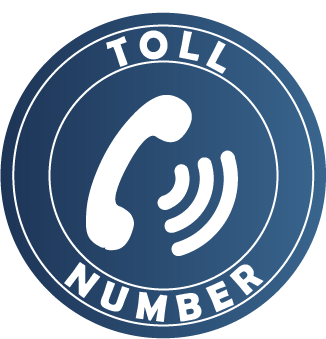FAQ: Toll-Free Number Frequently Asked Questions
What is a Toll-Free Number?
A toll-free number is a phone number that allows...
How does a Toll-Free Number Work?
When a caller dials a toll-free number, the call is routed through the telecommunications network to the recipient's phone line. The recipient's phone service provider covers the cost of the call, making it free for the caller. Toll-free numbers use specialized area codes like 800, 888, 877, 866, and others.
What are Vanity Numbers?
Vanity numbers are toll-free numbers that use memorable words or phrases as the numeric digits. For example, 1-800-FLOWERS is a vanity number for a florist. Vanity numbers make it easier for customers to remember and dial the number, enhancing brand recall and marketing efforts.
How Can I Get a Toll-Free Number?
To get a toll-free number, you need to contact a Responsible Organization (RespOrg) or a telecommunications service provider that offers toll-free number services. They will help you select an available toll-free number and set up the necessary routing for incoming calls.
Can I Transfer My Existing Number to Toll-Free?
Yes, you can often transfer your existing local or mobile phone number to a toll-free number. This process is called number porting. However, certain restrictions and requirements may apply depending on your service provider and location.
What Benefits Do Toll-Free Numbers Offer Businesses?
Toll-free numbers offer several benefits for businesses, including enhanced customer service, professional image, nationwide reach, and improved marketing effectiveness. They allow businesses to establish a direct line of communication with customers and create a positive brand perception.
Are Toll-Free Numbers Available Internationally?
Toll-free numbers are primarily used within a specific country's numbering plan. For example, toll-free numbers in the United States have area codes like 800, 888, and others. However, some businesses offer international toll-free numbers with country-specific codes to cater to a global customer base.
How Can I Choose the Right Toll-Free Number for My Business?
Choosing the right toll-free number involves considering factors like your target audience, branding goals, and availability of vanity numbers. You should also assess your expected call volume and the features offered by the service provider, such as call forwarding and reporting.
Can I Receive International Calls on My Toll-Free Number?
While toll-free numbers are primarily intended for domestic calls, some service providers offer options for receiving international calls. However, international callers might still incur charges when dialing a toll-free number outside its designated country.
Are Toll-Free Numbers Secure?
Toll-free numbers are as secure as any other phone number. However, businesses should take standard precautions to protect customer information and ensure secure communication. Implementing encryption for calls and using reputable service providers can help enhance security.
How Can I Set Up Call Forwarding for My Toll-Free Number?
Setting up call forwarding for a toll-free number involves working with your service provider to configure the forwarding rules. You can forward calls to a landline, mobile phone, or even a virtual call center. Customizable call forwarding options enhance flexibility and customer service.
What's the Difference Between Toll-Free and Collect Calls?
Toll-free calls are free for the caller, and the recipient (business) pays for the call. Collect calls, on the other hand, are calls where the recipient pays the charges. Collect calls are often used in emergency situations or when the caller doesn't have a prepaid account to cover the call cost.
Can I Use My Toll-Free Number for Text Messaging?
Yes, some toll-free numbers support text messaging, also known as SMS (Short Message Service). Businesses can use toll-free numbers to receive text inquiries, provide customer support via text, and send promotional messages. Text-enabled toll-free numbers offer additional communication channels.
What Should I Consider When Choosing a Toll-Free Service Provider?
When choosing a toll-free service provider, consider factors like pricing, call quality, customer support, features offered (such as call recording and analytics), and scalability. Research customer reviews and compare plans to find the provider that meets your business needs.
How Can I Measure the Effectiveness of My Toll-Free Number?
To measure the effectiveness of your toll-free number, track metrics like call volume, call duration, call origin, and caller inquiries. Many toll-free service providers offer reporting and analytics tools that provide insights into customer interactions and the impact of your toll-free number on your business.
